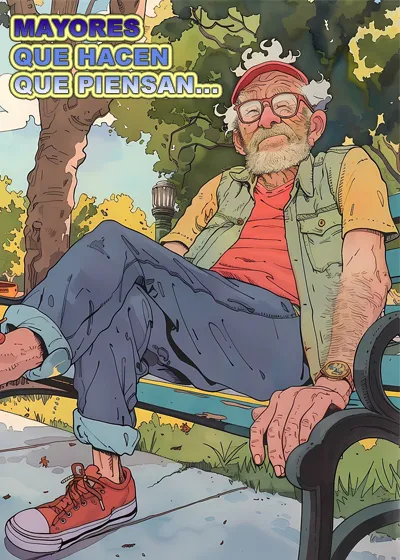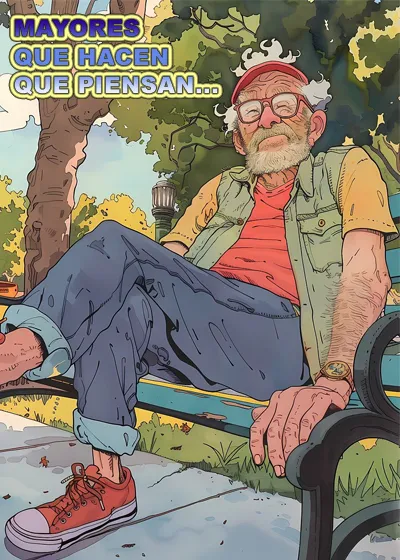
Business over Tapas Nº 586
A digest of this week's Spanish financial, political and social news aimed primarily at Foreign Property Owners: Prepared by Lenox Napier. José Antonio Sierra
News in English12/06/2025 Redacción
Redacción

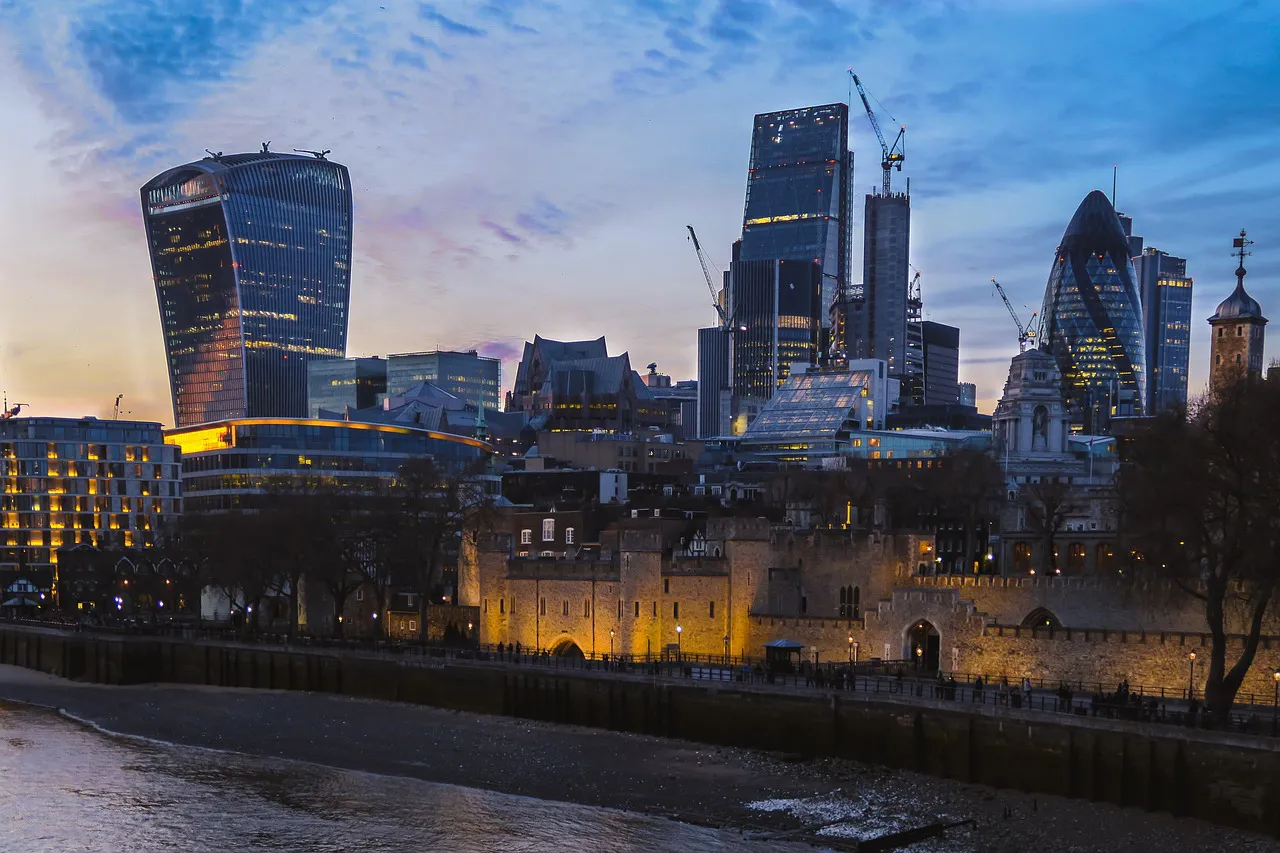
A digest of this week's Spanish financial, political and social news aimed primarily at Foreign Property Owners:


Prepared by Lenox Napier. Consultant: José Antonio Sierra
For subscriptions and other information about this site, go to businessovertapas.com
email: [email protected]
***Now with Facebook Page (Like!)***
Note: Underlined words or phrases are links to the Internet. Right click and press 'Control' on your keyboard to access.
Business over Tapas and its writers are not responsible for unauthorised copying or other improper use of this material.
Subscription and e-mail information in our archives is never released to third parties.
Editorial:
It’s the time of the year when some of the pueblos in my small corner of Spain celebrate their various Moors and Christians festivals. How close to marking a factual date, or just because it was otherwise going to be a quiet weekend, is unclear. But apparently in 1488, Mojácar, where I live, fell to the Christian forces. Next-door Vera on the one side of us and Carboneras just over the mountain on the other side also fell this (or maybe next) weekend some 537 years ago. As I write this, all three towns have been enjoying their processions, fabulous costumes, bands playing waily-waily music and lots of thunder-flashes going off – loud enough to wake the dead. Indeed, to add to the fun, Vera town hall has thrown in a bullfight as well.
And don’t forget, Carboneras has a castle for that extra bit of verisimilitude.
The whole idea began down our way in around 1988 (appropriately, the fifth centenary of the final push towards Granada, a ‘reconquista’ which swept through our area in that year). The costumes and celebrations come (usually rented in our case) from the Alicante town of Alcoy, which has apparently been honing its medieval armour since King Jaume of Valencia passed through there with his forces in 1276.
Mojácar’s festival is different, according to our recently-invented tradition, in that the Christian captain and the Moorish mayor are said to have sunk their differences over a glass of dandelion tonic down at the Fuente, and agreed that we – or rather they – were all Spaniards together and, by the way and in case you wondered, the road to Granada is over there, just past that algarrobo. As the Town Hall’s blurb puts it ‘…when we tell them of the story of that peaceful surrender of the city, they are surprised. It's a festival without victors or vanquished’.
This year, the fiesta had been extended an extra day and now runs Thursday through Sunday. When pueblos find that they are on to a good thing, visitor-wise, they often add an extra day or two. The Almería City’s saint’s day in August, for example, runs for nine days straight.
Peculiar that, considering that very few visitors make their way to the Big Al. Their surrender to the Christians, meanwhile, falls rather unfortunately on December 26th – where other, jollier celebrations are already going on.
We went up to the village on Thursday evening, to find that things hadn’t really got going. The different hard-board castles or kabilas, or whathaveyous were there, pressed back to back in the reduced area of the pueblo (Mojácar: a small and ancient town perched on a hill), all equipped with the 21st century equivalent of record players. Eight different venues for the seven groups loosely divided into Moors or Christians (generally speaking, the Moors are the PSOE and the Christians are the PP because, even in a small village, one must divide into still smaller peñas to belong).
The foreigners? Well some of them have joined in, above all, those who can afford to rent a outfit. One of them told me later that his heavy costume, plus the rehearsals, plus marching up the Mojácar hill – and later down again (rather like the Duke of York’s men), in full regalia, will have taken five years off his life.
I’ve been to a few Moors and Christians festivals over the years. The tinier villages in the mountains may be a bit quieter – with a costumed fellow on horseback declaiming a major chunk of poetry to his be-turbaned antagonist before the hired band lets go with a selection of modern pop songs and we all, locals and those who moved years ago to Almería City but still have a house here, move en masse to the tin chiringuito for a beer and something chewy on the hot-plate. One village popular with the foreigners, Bédar, used to feature a chap on a donkey wrapped in a table-cloth, another wearing the uniform of a military service private soldier seated on a Mobylette, plus someone from the Town Hall to help with the ancient poetry. ‘Avast, thou Moor, for this is a Godly Kingdom…’
Gouts of this stuff. Think ‘The Merchant of Venice’. And then cue the fireworks, and down to the bar.
Mojácar on Thursday evening was fairy crowded but the various kabilas hadn’t got going, so we sat in the main square at a table with someone we knew, together with a man from Tipperary, whose accent, alas, was too impenetrable for my poor German companion, plus a very nice lady dressed in a disturbing Goth outfit. To make up the party, there was a large and unchained parrot, who was nodding appreciably in time to the distant drums.
After a couple of schooners of gin and a Donner Kebab – Mojácar suddenly has a number of these establishments – we went home (there’s a secret route that the traffic police for some reason haven’t found).
For these affairs, I used to wear my old djellaba (a sort of gentleman’s nighty with a hood), a souvenir of a long-ago trip to Morocco. But I can’t find it now, I think it must have gotten thrown out.
On the second evening, Friday, we decided to take the bus up to the village – a performance which proved to be painless. We could see cars parked all the way up and all the way down again. Our bus-driver let us off just below the square.
By now, the party was well and truly underway. Many townsfolk were in their costumes, and several carried with them a type of arquebus (or maybe a hand-cannon) called un trabuco, whose only function, as far as I can see, is to deafen the unsuspecting bystander.
The different barracks were doing trade, one with a magnificent group of brass musicians from Alicante wearing fezzes. The wine was flowing and luckily the busses were still running (they continued until five in the morning, by the way), when we finally made our adieus.
Saturday was a quiet day for us, with the windows firmly closed – and the air-conditioner on full – to help keep the explosions, bangs, drum-rolls, trumpets and shrieks away.
The last day of the festival was Sunday.
We took the bus once again, this time so overcrowded, the driver could barely close the door. We then lounged about for a couple of hours, with a few drinks to refresh ourselves, in keen anticipation of the oncoming parade.
Which was fantastic.
I think they must rent the costumes from some crafty fellow in Alicante who is making himself a small fortune. They were both beautiful and dramatic. More and more warriors (and princesses and some heavily armed children) passed slowly and regally by, with musicians accompanying each of the seven kábilas. The whole parade took over ninety minutes and probably had anything up to a thousand participants.
Following this stupendous experience, everyone else went home, while we settled on another glass of wine and a bowl of patatas bravas.
The Mojácar mayor later had this to say:
‘In many other cities, the confrontation is recreated. In Mojácar, we celebrate mutual respect. And that, in these times, is more valuable than ever’. Amen to that.
…...
Housing:
From Mark Stücklin’s Spanish Property Insight here, ‘A new study from Fotocasa Research has found that over a third of Spain’s empty homes have stood unused for more than five years—a figure that has edged higher even as housing demand soars in key regions. The findings shine a spotlight on a paradox that continues to frustrate both policymakers and prospective buyers’.
Some banks might start asking if you have children. From Xataca here, ‘The real estate sector has come up with an idea to solve the housing crisis: by allowing children to "inherit" their parents' mortgages. Housing is the largest expense for Spanish households and 30-year mortgages have failed to reduce this. Developers have proposed a solution to this problem: mortgages of up to 70 years to combat rising prices’.
An elderly couple are being asked to leave their apartment in a historic corner of Málaga by a truculent vulture fund, so they can build afresh. Público has the story of how the promoter is going ahead as far as it can with the demolition (and bullying). With video.
From Realty+ here: ‘Madrid is named the world capital of luxury property. The Spanish capital has risen three places this year to claim the top spot, overtaking cities like Dubai and Miami’.
From Robando tu Tiempo here: ‘In Spain, talking about housing means talking about anguish, precariousness, and expulsion. It means talking about young people unable to emancipate themselves, about families spending up to half of their entire income on rent, about a market that has decided that having a roof over their heads is an investment, not a right. But despite this daily drama, the one subject that dominates the news and the political talk shows are the okupas: the squatters: a minority and marginal phenomenon that the media and some political parties present as a massive threat. Meanwhile, the real problem slips through the cracks: the conversion of our cities into tourist theme parks, the speculation in housing, and the complete surrender of the state to the vulture funds…’
…...
Tourism:
As Cadena Ser points out, there are a lot of tourist apartments (known as VUTs or Viviendas de Uso Turístico) which are unregistered, while everyone looks the other way. ‘City councils justify themselves by saying they don't have the capacity to supervise them all, but experts point to another reason: "Spain thrives on tourists"’.
…...
Finance:
‘The bankruptcy of the insurance company FWU (Luxembourg) leaves 40,000 Spaniards hanging. The company's case has led to thousands of lawsuits against the intermediary firm OVB for the alleged lack of information in the contracting process from some of its investment products’. Item from La Información here.
…...
Politics:
From 20Minutos here: ‘The PP regional presidents ask Sánchez for general elections, and he replies: "They will be held when the time comes, in 2027"’.
The meeting of the regional presidents last Friday in Barcelona went as well (or badly) as could be expected. Isabel Díaz Ayuso, the president of the Madrid region, put up with the President of Galicia – he’s PP – saying a few words in Galego, one of Spain’s co-official languages, but then noisily stomped out when the Basque president stood up and started his spiel in Euskera. Catalonia’s PSOE president was just warming up… The assembled all had earphones, and the whole subject is ridiculous, but there you go.
Pedro Sánchez had brought an offer to the meeting of subsidising the building of public housing to the various regions, but only a few – Catalonia, the Canaries, the Basque Country, Asturias and Navarre – took up the offer of the 1,538 million euros to be shared between them from the Central Government.
From El Mundo here: ‘The Conference of Presidents ends in total disagreement: the PP demands elections and Sánchez replies that he will complete his full term until 2027’.
Ayuso is the subject of an editorial by Ignacio Escolar (editor of elDiario.es) here, who says that, all things being as they are, one can forget Santiago Abascal, as the real leader of Trumpian politics in Spain is Isabel Díaz Ayuso.
On Sunday, Feijóo’s Mafia o Democracia protest went ahead in Madrid. Here’s El Mundo’s take: ‘Feijóo promises to "lead the revolution of decency" at a demonstration that the PP estimates will attract more than 100,000 people’. Watching the RTVE, which claims 55,000 present at the protest (including people bussed in from other parts of Spain), we were treated to Feijóo talking about the corrupt government of Sánchez and the ‘decency’ of the Partido Popular. He called for fresh elections. Oscar López, the leader of the PSOE opposition in Madrid, noted that ‘they may have filled the Plaza de España with hatred and insults, but not with people’.
The weekend also saw the far-right Madrid Economic Forum with Santiago Abascal and Javier Milei taking time off from his presidential work in Argentina to tell his listeners that ‘If you want to clobber the local bandit, I’ve got no problem with it,’ Milei said, in reference to Pedro Sánchez. Later in his remarks, which centred on justifying his administration’s economic strategies, Milei responded to supporters who shouted: ‘We need you here!’ - ‘I will always be on your side when it comes to opposing the socialists,’ he said, adding an expletive directed at Sánchez’s political party, which drew loud applause from the crowd…’ Spain in English has the fuller story here.
From El Huff Post here: ‘The question the Partido Popular fears most makes headlines in The Washington Post in a comprehensive report by the American newspaper’.
The Post says: ‘Valencia’s flood was a catastrophe. Was it also a crime?’ A judge investigating the events says that ‘The premise of the investigation is stark: that many of the deaths were preventable. “A failure,” the judge wrote in court documents about the delayed alert. The deaths and devastation “all occurred amid the clear inaction of the regional administration”’.
From El Huff Post here: ‘This Tuesday, the Council of Ministers approved an investment of €15,635 million to be distributed between 2026 and 2037 so that the Ministry of Defence can develop twelve new Special Modernization Programs’.
…...
Catalonia:
From El País in English here: ‘Montgat, the Spanish town stripped of beaches and income. Climate change has swallowed beaches in this Barcelona municipality, which has lost one million euros a year since the pandemic due to the lack of tourists’. (My thanks to Jake)
…...
Gibraltar:
From LBC here: ‘David Lammy 'agrees deal on Gibraltar' with Britain to hand control of border to Europe. Brits will be made to show their passports to Spanish or EU guards when they land on the Rock’. Late news from 20Minutos here, ‘The basis for the negotiations was the so-called New Year's Eve Agreement, concluded by Spain and the UK on December 31, 2020, which provides, among other things, for the abolition of La Verja, the material frontier, and the Rock's de facto entry into the Schengen Area…’
…...
Europe:
From El País here: ‘The Great Reset: This is the detailed plan to dismantle the EU that excites Vox. A Hungarian and a Polish group have secured the support of Abascal's party and other far-right forces for a detailed plan to liquidate the European institutions’. Or, as we read later, ‘to reduce the current EU to ashes’. While there seems to be several versions or plans under this title, it appears to follow ‘The Great Reset – An Urgent Need for Drastic EU Reform’ prepared by the Ordo Iuris Institute for Legal Culture from Poland.
…...
Health:
There are regular reports that the public health service in Andalucía is faltering, as the private companies expand their presence. From El Plural here: ‘The regional president Juanma Moreno Bonilla destroys healthcare and increases mortality in Andalucía. A report reveals that Andalucía exceeds the national average in five of the six main causes of death (cancer, heart attack, stroke, heart failure and suicide)’. The article says that ‘The latest Health Barometer confirms what thousands of Andalusians experience every day: Andalucía's public healthcare system is the worst rated in the country, with a score of 5.72 out of 10. This rating reflects the overcrowding of health centres, delays, a lack of healthcare personnel, and growing public discontent. One of the most serious problems is the shortage of healthcare professionals. Andalucía has only 3.1 healthcare workers per 1,000 inhabitants, compared to the national average of 3.7. Only Ceuta and Melilla have worse figures’. All said, however, the Spanish public health system is, I think, very good.
…...
Corruption:
‘Victor Aldama's six months of freedom: accusations, many TV appearances, and endless calls to overthrow Pedro Sánchez. The businessman, who was allowed to leave prison in November of last year after providing the judges with details of the "Koldo Case" (pending verification), is urging Alberto Núñez Feijóo's Partido Popular to remove the PSOE from the Moncloa Palace’. From elDiario.es here. On Tuesday, following accusations from Aldama, the UCO spent the entire day searching the home of the ex-Minister of transport José Luis Ábalos. The assistant-editor of elDiario.es looks at the peculiar liberation from prison of Víctor de Aldama last November (he was put away for his part in a fraud against Hacienda valued at 182 million euros). The judge – evidently a conservative one – was swayed by Aldama’s stories of PSOE corruption and how he could prove it if he was only allowed to walk the streets again. So far, besides some media fireworks, he hasn’t managed to land a shot. ‘…According to the investigation, the criminal network diverted 74 million to Portugal, China, and Colombia with the intention of laundering the funds. How can anyone doubt his moral integrity? "The Socialist Party put me in jail to silence me," Aldama said last week’.
El Mundo has: ‘The National Court releases former Interior Minister Francisco Martínez because there is no longer a risk that he will destroy evidence’. He was sent down only two weeks ago says the ABC here precisely to stop him hiding or destroying evidence.
‘The judge investigating Ayuso's boyfriend for business corruption reopens the case and charges the wife of the president of the private healthcare agency Quirón Prevención’. The story is at Cadena Ser.
‘The Patriotic Police (wiki) spied on 32,000 BPA clients without judicial permission. New documents show that las cloacas (an epithet similar to bottom-feeders, wiki) manipulated data from the Andorran Private Bank without oversight in their search for information against Catalan independence’. Item from El Món here.
The Olive Press runs ‘Continental Wealth Management founder breaks silence to deny €35m fraud which devastated hundreds of expat retirees in Spain – and points the finger at bigger boys’.
The Judge is going ahead with the crumbling case against the Attorney General Álvaro García Ortiz, accused of leaking an (already leaked) document to the media...
‘Ione Belarra (Podemos) on the prosecution of State Attorney General García Ortiz: "When they waged the dirty war against Podemos, the independentists, and social movements, the PSOE did nothing. The General Council of the Judiciary made a pact with the right, and this is the consequence"’. The Judge has no more proof now than he did when he started this cause eight months ago says Ignacio Escolar here. Some notes on the judge here.
A long list of court cases coming up against the Partido Popular on BlueSky here. Perhaps the Partido Popular is looking for early elections precisely so these upcoming cases don’t reach the courts at the wrong time says someone.
…...
Media:
The Minister of Transport Oscar Puente comments on the abrupt change of a title in Las Provincias from ‘Carlos Mazón booed at the Tyrius housewives' luncheon’ to ‘Mazón shares lunch with almost a thousand Tyrius housewives’. All good fun says Público.
The fact-checker Maldito has the story of ‘The hoax that 16 countries, including the United Kingdom and the United States, recommend against traveling to Spain in 2025’.
The far-right has a new media-star to follow. An article about Iker Jiménez (he does a kind of Erich von Däniken show on the TV called Cuarto Milenio) here.
…...
Various:
Eye on Spain writes of Europe's highest capital. ‘Nestled high in the Pyrenees, a unique gem awaits travellers seeking something truly different. Forget bustling metropolises and sprawling transport hubs; Andorra la Vella, the capital of the Principality of Andorra, offers a refreshingly distinct experience…’
…...
See Spain:
GuiriGuru (a new one for me) brings us an interesting essay: ‘Spain road trip: Zaragoza to Teruel on the Mudéjar highway’. With video and some nice photos.
…...
Finally:
Something from the French countryside: Gloire aux Moutons with La Rioule des Compagnons du Monde & les Monts Rieurs on YouTube here.




A digest of this week's Spanish financial, political and social news aimed primarily at Foreign Property Owners: Prepared by Lenox Napier. José Antonio Sierra

A digest of this week's Spanish financial, political and social news aimed primarily at Foreign Property Owners: Prepared by Lenox Napier. José Antonio Sierra

A digest of this week's Spanish financial, political and social news aimed primarily at Foreign Property Owners: Prepared by Lenox Napier. José Antonio Sierra

A digest of this week's Spanish financial, political and social news aimed primarily at Foreign Property Owners: Prepared by Lenox Napier. José Antonio Sierra

A digest of this week's Spanish financial, political and social news aimed primarily at Foreign Property Owners: Prepared by Lenox Napier. José Antonio Sierra





Philip Rivers vuelve a escena: los Colts lo firman al practice squad y se reabre la puerta a su regreso a la NFL
La NFL amaneció con un giro inesperado: Philip Rivers, uno de los quarterbacks más emblemáticos del siglo XXI, ha sido incorporado oficialmente al practice squad de los Indianapolis Colts, según confirmó la franquicia tras una jornada marcada por lesiones en la posición de quarterback. El movimiento reaviva la posibilidad de que el veterano pasador de 44 años vuelva a jugar un partido profesional más de cuatro años después de su retirada.

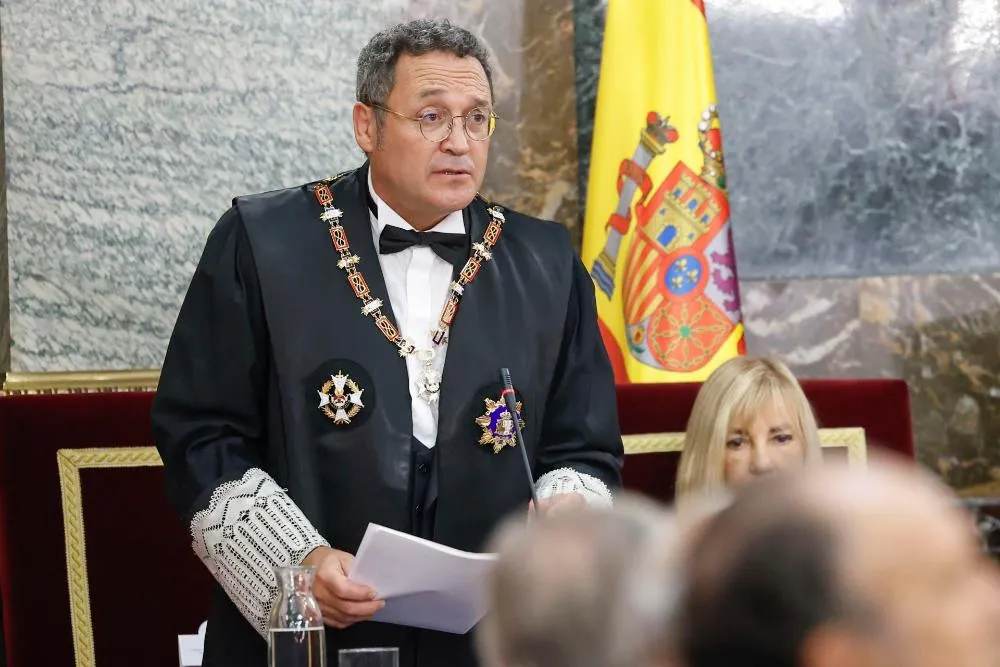

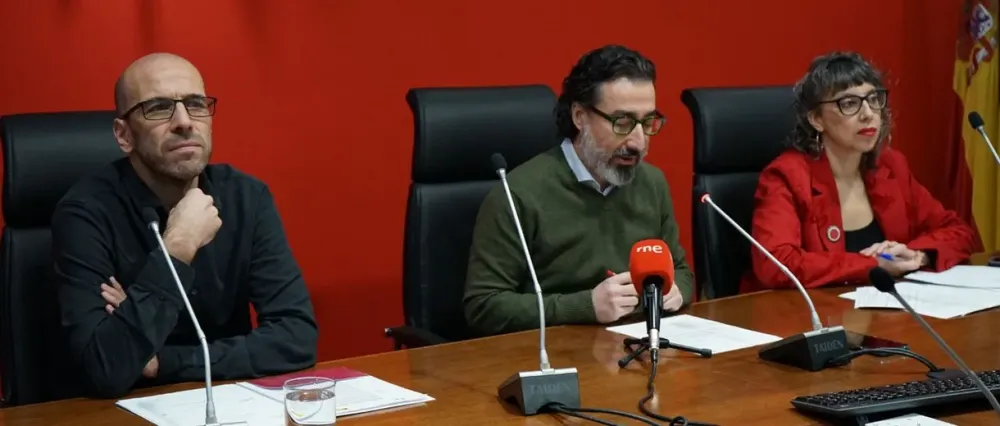
Según la Red de Pobreza






